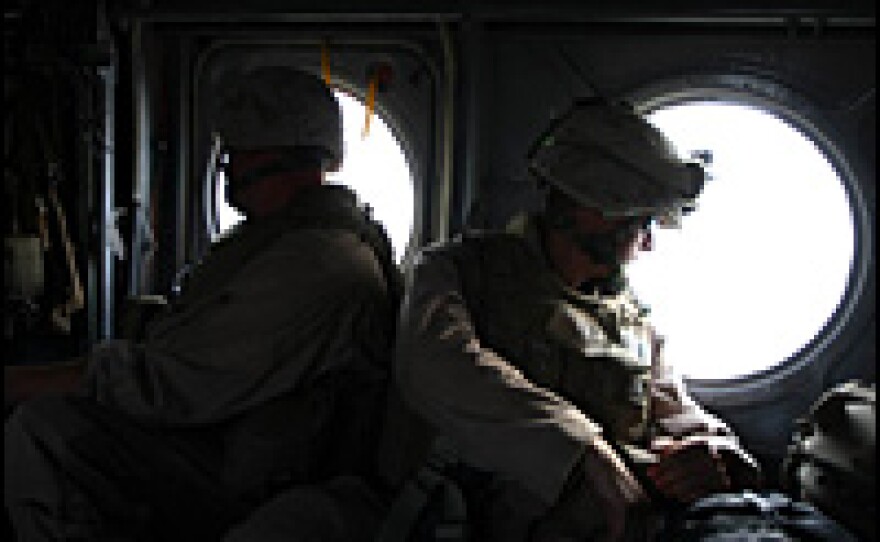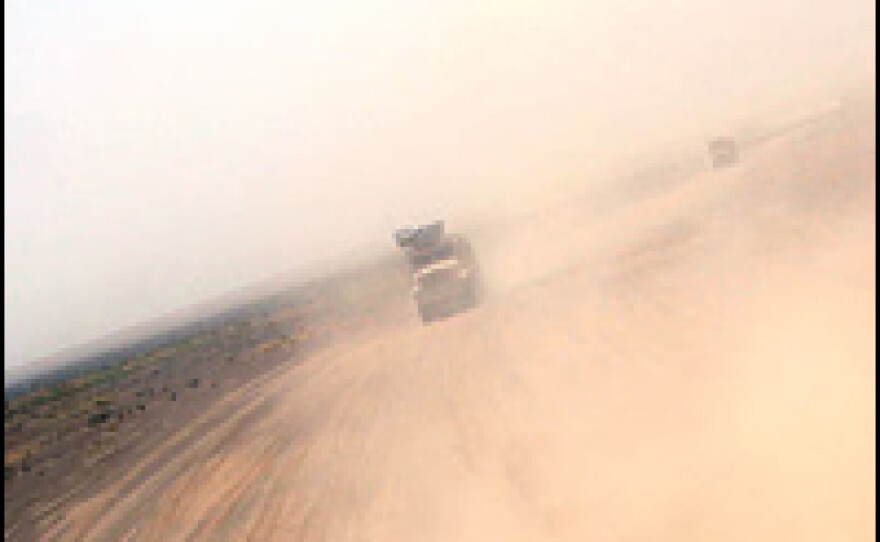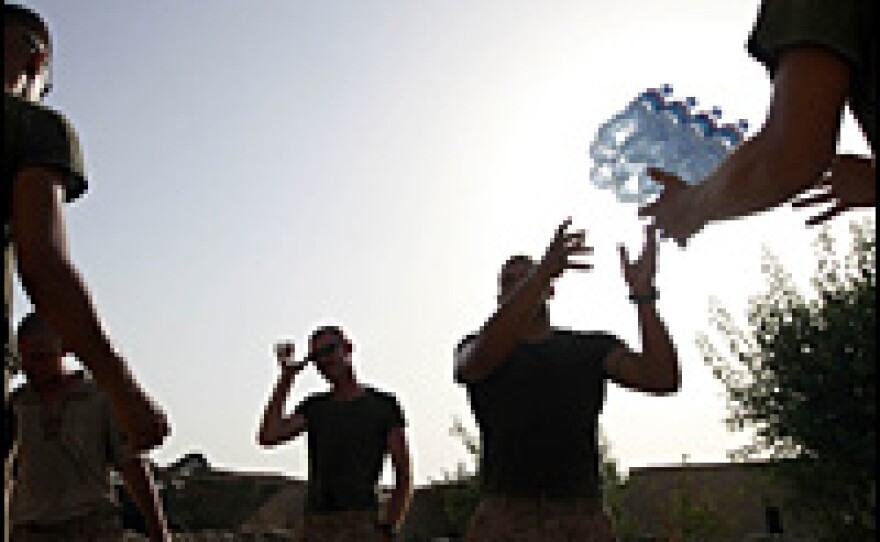


In Afghanistan, tens of thousands of NATO-led U.S. and foreign troops are battling a Taliban insurgency across eastern and southern Afghanistan. NPR's Ivan Watson and David Gilkey spent the past four days traveling across the network of NATO bases in southern Afghanistan and sent this postcard about the journey.
It took four days to travel from the Afghan capital of Kabul to a Marine outpost in the southern part of the country.
One of the first stops on the journey was the sprawling air base outside the city of Kandahar.
On Sunday night, thousands of soldiers stood on the tarmac here, to bid farewell to a Canadian soldier who died in the line of duty.
Capt. Jonathan Snyder died while on night patrol, when he accidentally fell into a 60-foot-deep well. Canada has lost 85 soldiers and one diplomat in Afghanistan, the highest wartime death toll for the Canadians since the Korean conflict nearly 55 years ago.
Some 2,500 Canadian soldiers are based outside Kandahar. They are part of a kaleidoscope of different military units deployed across southern Afghanistan.
Kandahar is the main transport and logistics hub for this turbulent region.
It takes less than an hour to fly aboard a C-130 cargo plane from Kandahar to the main British military base in Helmand province.
The British force of some 7,500 soldiers in Helmand suffered fresh casualties Sunday, when a suicide bomber attacked a foot patrol and killed three soldiers.
Lt. Col. Robin Matthews, spokesman for the British force, said one of those casualties represented the 100th death of British soldiers engaged in operations in Afghanistan.
"We're now dealing with a counterinsurgency campaign. ... I think everybody now acknowledges the scale of the problem," Matthews said.
From the British base, a twin-rotor helicopter ferries U.S. Marines and equipment to Camp Dwyer, another British base that now is also home to the U.S. Marines 24th Expeditionary Unit.
The camp is a spartan place: no showers and little electricity. Marines swelter in the desert heat in tents with dirt floors infested by camel spiders the size of a hand.
On Wednesday, Staff Sgt. Dale Cortman prepared to lead a large supply convoy across Garmsir District, which had long been a lawless region near the border with Pakistan.
The Marines captured much of this district from the Taliban after weeks of fighting in May.
One of the Marines on board the supply convoy was 19-year-old Doug Hicks from Florida. His job was to guard three detainees in an armored truck.
The prisoners wore plastic flex-cuffs and blindfolds. Hicks barely interacted with them except to hand them bottles of water and occasionally order them, in Pashto, to shut up when they whispered to each other.
The convoy rolled down dirt roads, past endless fields of opium poppies and mud-brick farmhouses, some of which had been damaged during last month's fighting.
Hicks was not impressed.
"This place, I say it's pretty much hell. It's hot, dusty, doesn't rain. Everything's tan," he said.
The convoy finally arrived at the improvised headquarters of this company of Marines.
The young Marines stationed here made a long human chain and spent more than an hour in 120-degree heat offloading bottles of water from the trucks.
"If mail's on the truck, it's the highlight of the day," one Marine said, as he tossed water bottles under the hot sun. "If there ain't no mail, you just get pissed off!" his neighbor answered.
When they finished the chore, a few lucky Marines learned that they had, in fact, received some mail. They sat in the dirt of their mud-brick compound and read letters out loud to each other under a setting sun.
Copyright 2022 NPR. To see more, visit https://www.npr.org. 9(MDAzMjM2NDYzMDEyMzc1Njk5NjAxNzY3OQ001))







